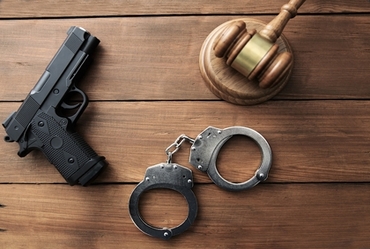Search

Being arrested or charged with a crime can be overwhelming and confusing, especially if it’s your first encounter with the criminal justice system. Understanding the criminal defense process helps you navigate this difficult time with greater confidence. This guide breaks down each stage of the process, from arrest to verdict, so you know what to expect and how to protect your legal rights.
The criminal defense process often begins with either an arrest or a formal investigation.
Key Tip: You have the right to remain silent and the right to an attorney. Use them both immediately.
After an arrest, you’ll be taken to a police station for booking, which includes:
Depending on the crime and jurisdiction, you may be held until you post bail or appear in court.
The arraignment is your first court appearance, usually within 24–72 hours of arrest. Here’s what happens:
Key Tip: Always have a criminal defense attorney present at your arraignment to guide your plea and bail argument.
Once you’ve pled not guilty, the pre-trial phase begins. This stage is crucial for building your defense. It typically includes:
Key Tip: An experienced lawyer can use pre-trial motions to weaken the prosecution’s case significantly.
If your case goes to trial, your attorney will begin preparing your defense. This involves:
Depending on the complexity of the case, preparation can take weeks or even months.
During the trial, both the prosecution and defense present their cases. A criminal trial typically follows these steps:
If the jury finds you not guilty, you’re free to go. If found guilty, the next step is sentencing.
If convicted, a separate sentencing hearing is scheduled. The judge will consider:
Sentences may include fines, probation, community service, rehabilitation programs, or incarceration.
If there were legal errors in your trial or constitutional violations, you may be eligible to appeal your conviction. Common grounds for appeal include:
Appeals must be filed within strict deadlines, so act quickly if you believe your conviction was unjust.
In some cases—especially with misdemeanors or first-time offenses—you may be able to seal or expunge your criminal record after fulfilling all court requirements. This can help restore your reputation and employment opportunities.
Facing criminal charges can feel like the odds are stacked against you, but knowing the criminal defense process empowers you to make informed decisions at each step. From arrest to trial—and potentially appeal—your best defense is understanding your rights and hiring a qualified criminal defense attorney who can protect them.
Whether you’re dealing with a misdemeanor or a felony, every stage matters. The earlier you get legal help, the better your chances of a favorable outcome.